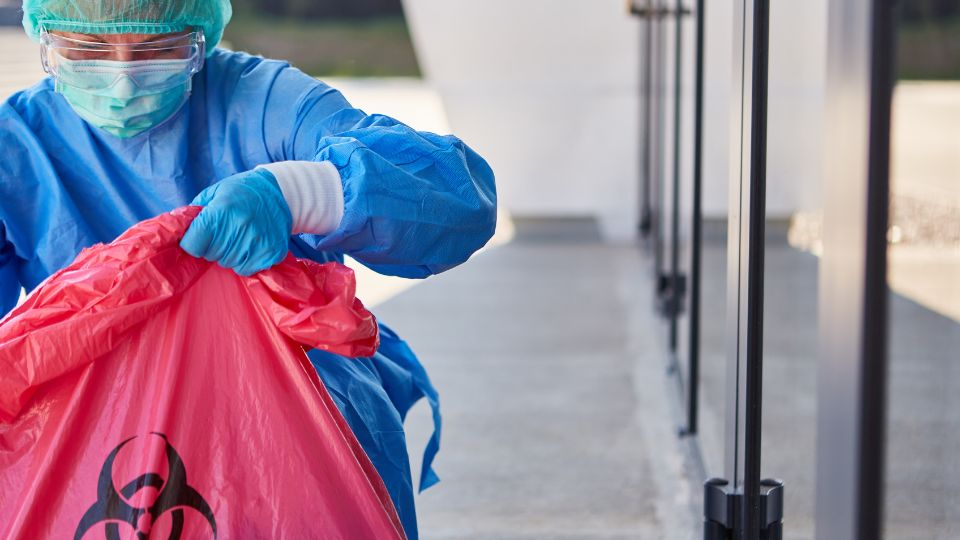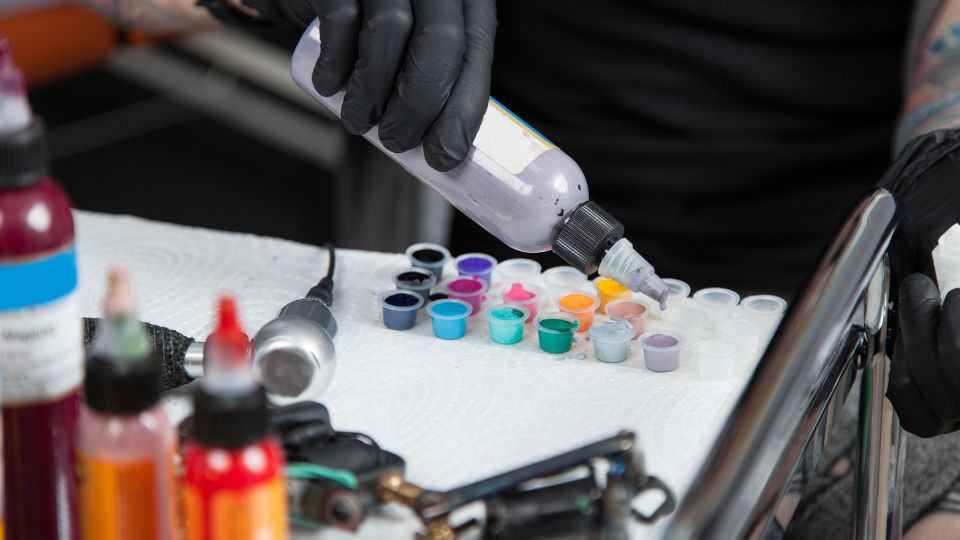
Sanitary waste and hazardous waste have a lot of overlapping qualities, so it’s easy to see why people are unsure!
Sanitary waste, a term that generally includes items like used sanitary towels, tampons, incontinence products, nappies and similar materials, is a common product associated with living life.
However, the question of whether sanitary waste qualifies as hazardous waste is nuanced and deserves a closer look.
Table of Contents
- What is Sanitary Waste?
- Defining Hazardous Waste
- Is Sanitary Waste Hazardous?
- Environmental Concerns of Sanitary Waste
- Conclusion

What is Sanitary Waste?
Sanitary waste primarily includes products used to manage bodily fluids and menstrual blood.
These products are typically made of absorbent materials such as cotton, synthetic fibres, and superabsorbent polymers, and are often disposed of after a single use.
Common examples of sanitary waste products include tampons, sanitary pads/towels/napkins, nappies, incontinence pads and more.

Defining Hazardous Waste
Hazardous waste, is wast that contains substances or has properties that might make it harmful to humans or the environment.
This doesn’t mean that the waste has to be an immediate risk to human health, although some hazardous waste may be.

Is Sanitary Waste Hazardous?
Sanitary waste is generally not classified as hazardous waste under most regulatory frameworks.
Here’s why:
- Biodegradability and Composition:
The primary components of sanitary waste are biodegradable materials that do not typically exhibit hazardous characteristics such as ignitability or toxicity.
- Regulatory Definitions:
Regulatory agencies usually classify sanitary waste as solid waste or municipal solid waste rather than hazardous waste.
This classification is based on the nature of the waste and its relative lack of immediate health risks when managed properly.
- Health Risks:
While sanitary waste can contain pathogens, the risk is generally considered manageable through proper disposal methods.
For instance, wrapping sanitary waste in plastic before disposal can mitigate the risk of pathogen transmission.

Environmental Concerns of Sanitary Waste
While not classified as hazardous, sanitary waste poses significant environmental challenges:
- Non-Biodegradable Components:
Many sanitary products contain plastics and synthetic materials that do not biodegrade easily, contributing to long-term environmental pollution.
- Volume of Waste:
The sheer volume of sanitary waste produced globally is immense, posing logistical challenges for waste management systems.

Conclusion
While sanitary waste is not typically classified as hazardous waste, it still requires careful management due to its potential environmental impact and the presence of bodily fluids.
Adopting proper disposal practices and considering eco-friendly alternatives can help mitigate these impacts and promote a healthier environment.








